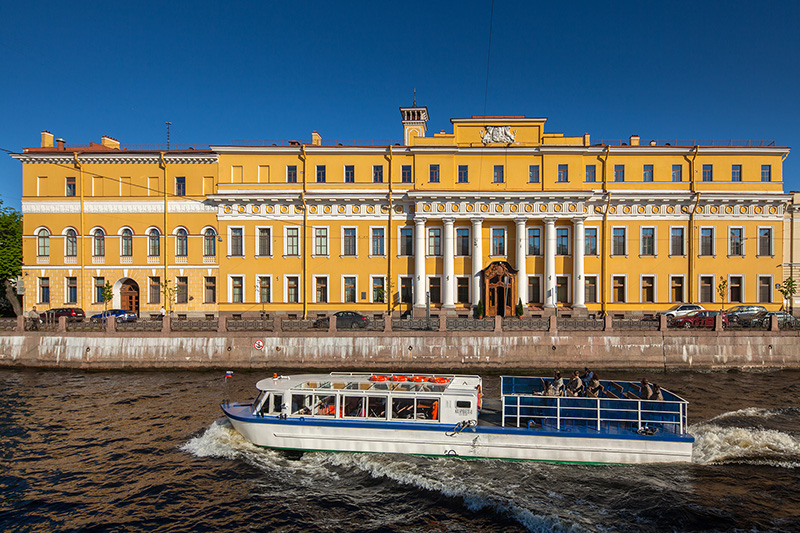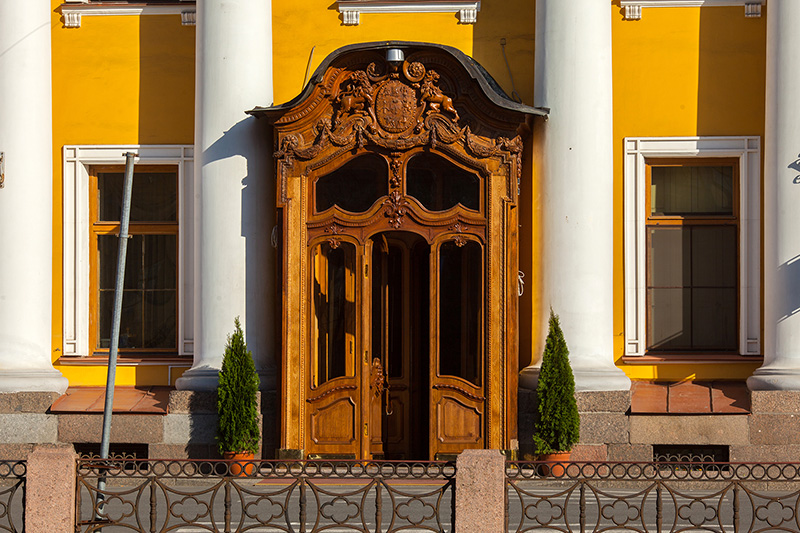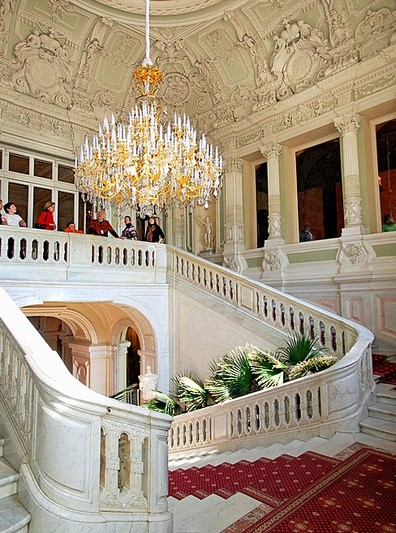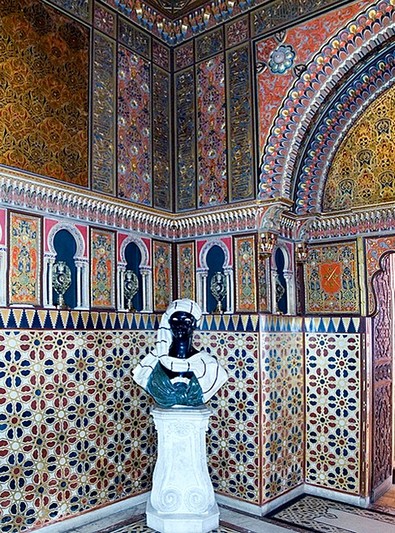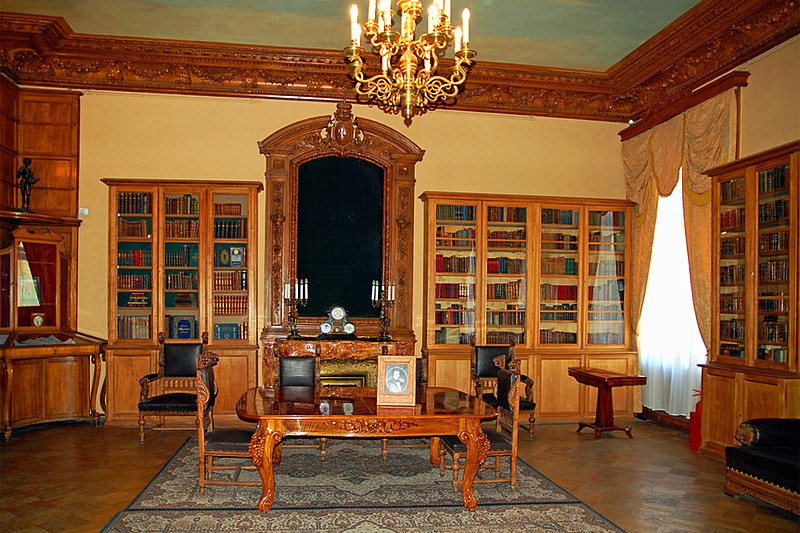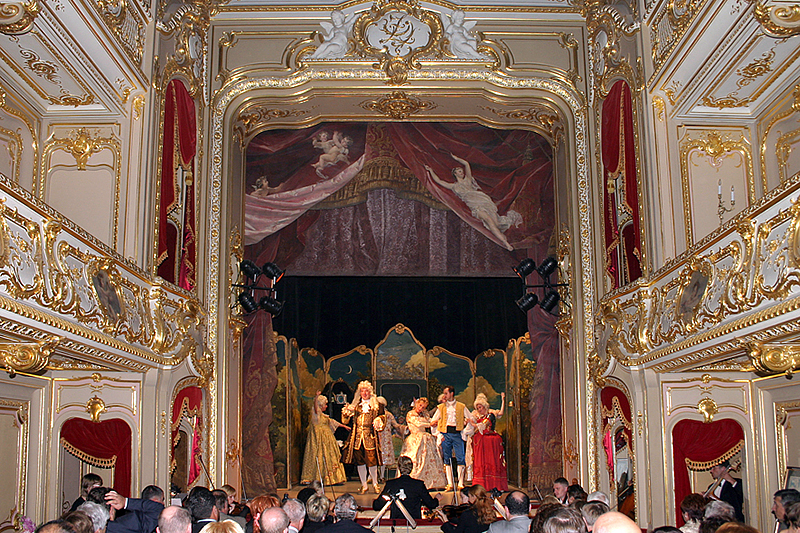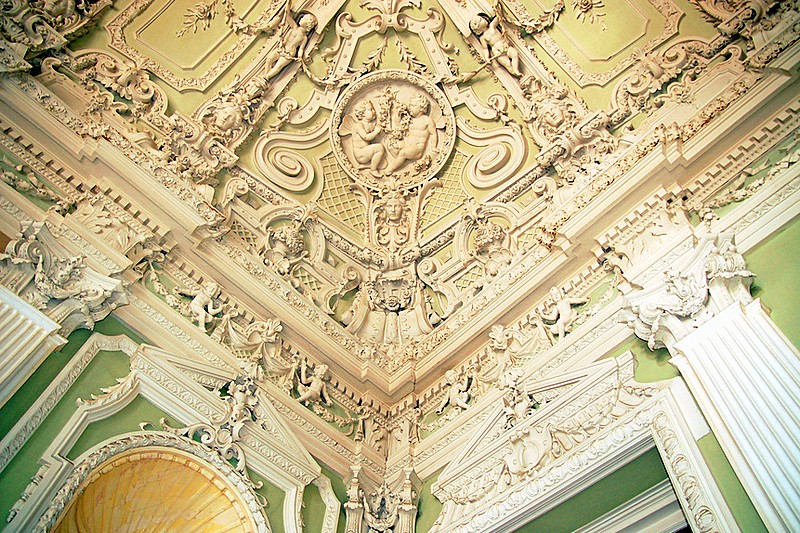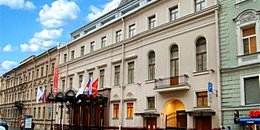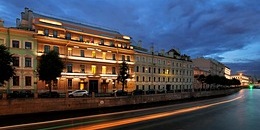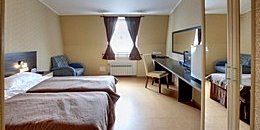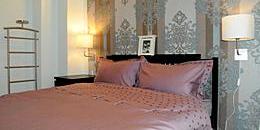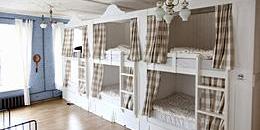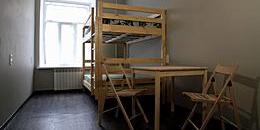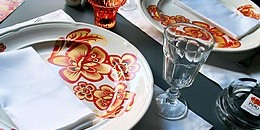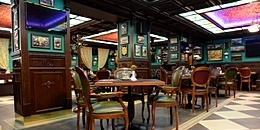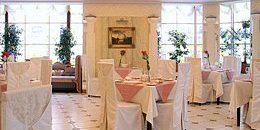Yusupov Palace on the Moika River
The land on which the palace stands, in the south of the historic centre close to the Mariinsky Theatre, was originally the site of a wooden palace belonging to Tsarevna Praskovia Ivanovna, niece of Peter the Great. In the mid-18th century it was bought by Count Peter Shuvalov. In 1770, his heir Andrei Shuvalov commissioned the French architect Jean-Baptiste Vallin de la Mothe, designer of the Small Hermitage, Gostiny Dvor and the Academy of Sciences, to build a new palace on the site. De la Mothe's building forms the basis of the palace that can be seen today, although various additions and alterations were made by leading architects as the palace changed hands over the years.
In 1830, the palace was purchased by Prince Nikolay Borisovich Yusupov, and it remained in the ownership of the family until seized by the Bolsheviks in 1917. The legends surrounding Rasputin's murder, which took place in the basement of the Yusupov Palace on 16 December 1916, are mostly based on the sensationalist account in the autobiography of Prince Felix Yusupov, who claimed to have led the plotters in first poisoning, then shooting, then beating Rasputin with clubs and throwing him into the icy Malaya Nevka River, where the Mad Monk eventually died of hypothermia. There is now a display in the palace museum that uses photography, documents, and wax figures to recreate the assassination and the following investigation.
After the October Revolution, the palace was handed to the educational authorities, which fortunately opted to preserve many of the original interiors and used the building as a type of clubhouse for the city's teachers. As well as the Rasputin display (which can be seen only on guided tours in Russian, unless booked in advance), the modern museum offers guests the chance to explore the reception rooms and living quarters on the ground floor of the palace (English-language audio tours available). The Yusupov Palace also functions as a cultural centre, hosting classical concerts and theatre performances in the beautiful rococo Palace Theatre and the equally impressive White-Columns Hall.
| Address: | 94, Naberezhnaya Reki Moiki |
|---|---|
| Metro: | Admiralteyskaya, Sennaya Ploshchad/Sadovaya/Spasskaya |
| Open: | Daily 11 am to 5 pm. |
| Phone: | +7 (812) 314-9883 |
| Website: | http://www.yusupov-palace.ru/ |
| Admission: | State Room: Adult RUB 700.00, Children RUB 500.00. Murder of Rasputin exhibit: Adult RUB 400.00, Children RUB 300.00. Individual visitors are welcome to see the State Rooms and exhibits with audio-guide (available in Russian, English, French, German, Italian, Finnish and Spanish). Private tours can be arranged in advance. |
| Ticket purchase online: | http://tickets.yusupov-palace.ru/en |
| Photo and video: | free/included |
| Accessibility note: | Many sections of the palace are wheelchair accessible, except the private rooms and exhibits "Last Owners of the Palace" and "Murder of Rasputin". |

